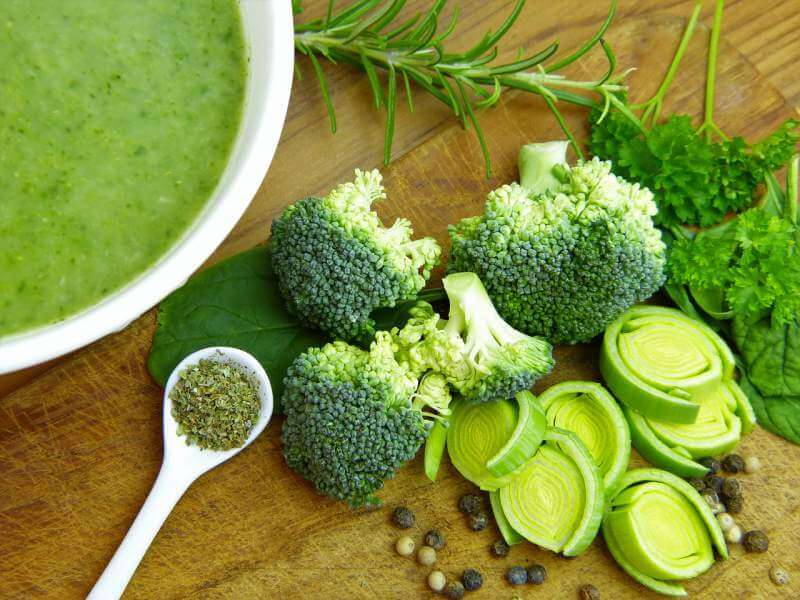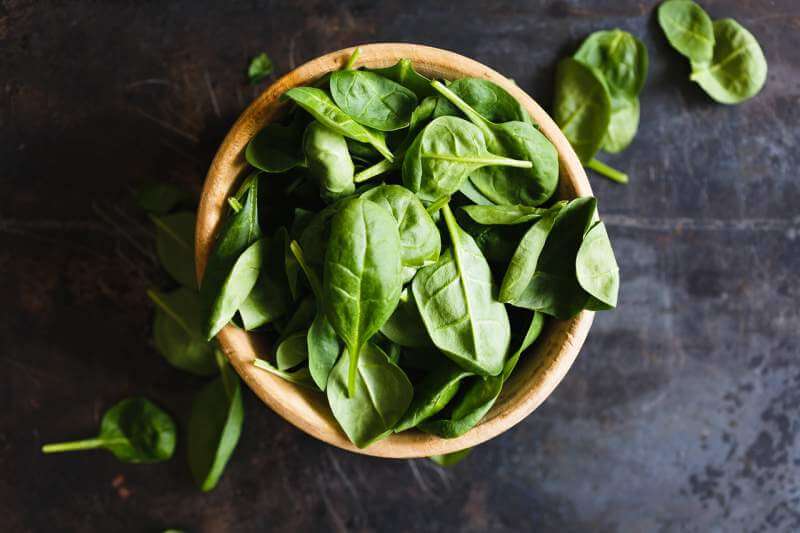Life is full of happy moments and enjoyment. And food plays an important part in our everyday existence. It improves our mood, gives us energy and lifts our spirit. Leading an active lifestyle and eating healthy is one of the essential components of our well-being.

For those of us who don’t follow a vegetarian diet, going meatless one day a week for a year may reduce the risk for heart disease, cancer and more.
Filling a plate with fresh fruits and vegetables can be fun, but it’s also crucial to learn how the food we eat protects us from a variety of diseases.
Let’s concentrate on three types of fruits and vegetables and discuss their advantages.
1) Broccoli

Broccoli, a member of the cabbage family, is an edible green plant. Broccoli’s large flowering head is eaten as a vegetable.
Broccoli may help prevent cancer
Broccoli and other cruciferous vegetables (cauliflower, cabbage, brussels sprouts, etc.) contain a compound called sulforaphane (SFN) which appears to be a promising tool to fight cancer. Studies also showed that broccoli may lower lung cancer risk in smokers.
Broccoli may help with bone health
For those of us who don’t eat dairy, broccoli is a great non-dairy source of calcium and other essential nutrients that help build and maintain strong, healthy bones.
Broccoli may help protect your heart
Broccoli is rich in soluble fiber, which help lower cholesterol levels and prevent heart disease. The fiber in broccoli may help a person feel fuller for a longer period of time, thus assist with healthy weight maintenance. Broccoli is also a good food choice for diabetics, since it does not cause blood sugar spikes.
There are lots of creative ways to incorporate broccoli into delicious meals: adding it to a veggie pizza, chopping it up and putting it in veggie or chicken wrap and many others.
So get creative and jump on the broccoli bandwagon!
2) Spinach

Spinach is an edible flowering plant and its leaves are eaten as a vegetable. It’s available all year long and can be stored in bulk in the freezer. Most people are familiar with spinach, but not everybody may know how good it is in so many ways.
Spinach may help fight cancer
Spinach is rich in a substance called betaine. One study showed that higher betaine intake may protect against lung cancer, while another found that betaine intake may lower the risk of breast cancer.
A cooked cup of spinach contains 245mg of calcium. Sufficient calcium intake may decrease the risk of developing colorectal cancer in both males and females. Sustaining the correct levels of calcium in the system may also reduce the risk of getting breast cancer.
Spinach is also high in folate (263mcg in one cooked cup), which is a B vitamin that strengthens DNA. Low folate levels have been associated with an increased risk of cancer.
Spinach may be great for cardiovascular health
According to the National Institutes for Health (NIH), spinach represents one of the highest dietary sources of nitrate, which may help relax the blood vessels and improve blood flow. A study with 27 participants who were randomly assigned to consume either a high-nitrate spinach soup or low-nitrate asparagus soup on a daily basis for seven days revealed that consuming high-nitrate spinach soup reduced elevated blood pressure and arterial stiffness.
Spinach may help slow down aging of the brain
Spinach may improve our brain health. There’s evidence that proves that. A study conducted by Rush University Medical Center that involved more than 950 elderly people showed that eating one to two servings of spinach a day may significantly slow down cognitive decline. The participants who ate spinach had the cognitive ability of a person 11 years younger than those who didn’t eat spinach.This also means that eating spinach may help protect us from Alzheimer’s.
Spinach is a great side dish. It also looks good on top of a veggie and hummus sandwich, as well as chopped up and mixed in with black bean soup.
There’s always room for spinach in our daily diet, any day of the week!
3) Avocado

This tasty fruit originates from South Central Mexico and classifies as a large berry, as it contains a large seed underneath all that creamy goodness.
Avocados are usually in season all year round. They are a perfect addition to salads and sandwiches, due to having a ton of healthy fats. They’re also great side dish. One of the main side dishes avocados are used for is guacamole.
Avocados may lower your cholesterol
A study in the Journal of the American Heart Association suggests that an avocado a day may lower harmful LDL cholesterol levels. Including avocados in our daily diet by putting half of one in a berry avocado smoothie for breakfast and the other half in a salad for lunch may do wonders for our cholesterol.
Avocados may help in maintaining a healthy weight
The National Institutes of Health (NIH) conducted a study which showed that one-half an avocado at lunch significantly reduced desire to eat and increased satiation. Avocados are rich in monounsaturated fatty acids (MUFAs) which according to NIH helps prevent diabetic health complications.
Avocados may help with diabetes
A number of clinical trials by NIH have shown that the MUFAs in avocados have positive effects on type 2 diabetes subjects.
Avocados taste incredible and have the calorie content greater than other fruits and vegetables.
Try it and you won’t be disappointed!
We’re surrounded by an abundance of fruits and vegetables. Their varieties are endless and the health benefits are evident. A diet rich in fruits and vegetables can help improve the quality of our life!
Author : Joy Stephenson-Laws
The president and founder of Proactive Health Labs , a public, non-profit organization.
In addition to her day-to-day leadership role with pH Labs, Joy is the founding and managing partner of Stephenson, Acquisto & Colman (SAC) the health care industry’s premier litigation law firm. She is also the co-founder and president of MoJo Marketing & Media, a boutique creative agency specializing in brand development and content creation, and of The Bili Project Foundation, a nonprofit organization that creates awareness of bile duct cancer and raises funds for research relating to this cancer. Joy received her B.A. from Loma Linda University in 1980 and Juris Doctor from Loyola University in 1983, and was admitted to the California Bar in 1984.
